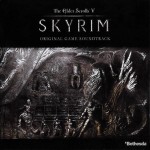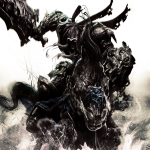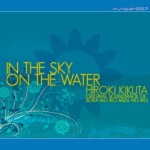Despite being relieved of the duty of underscoring the Crysuit, Inon Zur has been plenty busy this year. Although the Dragon Age series received somewhat of an overhaul for its second major release, Dragon Age 2, Inon Zur scores his own sequel in a style not too dissimilar from his previous work. As I have mentioned before, one of the more enjoyable scores to review is the sequel that has been scored by the same composer. I’ve mentioned Bioshock 2, Dead Space 2, and Halo: Reach ad infinitum because – simply put – they are absolutely stellar examples of how to expound upon on one’s own work while creating new material with which to thread a narrative.
Inon Zur is a big fan of vocal music and his score to the original Dragon Age is no exception. A very melodic, pleasant, and unobtrusive score complemented the action quite well and provided several memorable cues, particularly where the action seemed to subside. As for the sequel, does Zur live up to the standard set by his peers?
The simple answer is “yes.” In the general sense, Inon Zur gives us all of what we’d expect from his work: melodic, unobtrusive, and fitting of the moments it scores. Unlike the sequel soundtracks previously mentioned, this score seems to enjoy its ability to stand on its own – almost separate itself from its predecessor despite the stylistic (and even the key) similarities.
The opening theme of Dragon Age begins with a female voice providing a free melody only to be followed up by a thundering march. Dragon Age 2‘s opening theme also begins with a female voice and a free melody, only this time it is not sung, but hummed. The opening sustained note is even the same ‘E’ that opened the theme from the first game. The accompanying music is gorgeous. Great string voice-leading and some percussive thunder to suggest some impending danger take over providing a more interesting, and slightly more triumphant theme than its original counterpart.
“Templars” gives us much of the twangy guitar so prevalent in Zur’s Fallout soundtracks. Orchestration is somewhat thinner than one might expect for such a rousing and nefarious anthem, but the resultant effect is a dizzying and thrilling stylistic win that deftly stirs a sense of desperation in the listener.
“Kirkwall Nights” is the longest of the tracks and is frantic and brash anthem with changing meters and unfriendly brass. The soundtrack is littered with background vocals and this track is no exception. Adding to the sense of danger, unsettledness, and dread is a male chorus provided nefarious cues sporadically. Beginning with a wind theme with scant voices, Zur sets a stage for something yet to happen. The ascending (and rather unconventional) modulating bass line eventually settles the harmony with some hand drums. Suddenly, the brass begins grow agitated, followed by a syncopated bass and percussion. This theme moves us through the narrative with nervous anticipation.
The soundtrack to Dragon Age 2 is quite careful to never take the limelight. As Kai Rosenkranz once explained to me, in an RPG, it can be the kiss of death to a score if it’s too melodic and does not take into account the long periods of relative inactivity, menu-screen negotiation, etc. Although Rosenkranz was incredibly pleased with his score for Gothic III, he was not shy about expressing his slight disappointment in his own overzealousness in creating too musical an experience.
In Dragon Age 2, Zur has created a wonderfully intimate-yet-epic score, making up in style and fervor what it might lack in volume and heft. Much like the Dragon Age games, the world is vast, but the story is highly focused and concentrated on a single team of individuals. It is this brotherhood and intimacy that Zur encapsulates in his score. The original Dragon Age score felt somewhat bigger than this but I don’t believe any fans of the original will be disappointed with Dragon Age 2‘s offering.
Tags: Dragon Age, Dragon Age 2, Inon Zur, Reviews, Videogame










































I maintain that Fenris’ theme is the best song on this album. It is absolutely haunting. Great review!